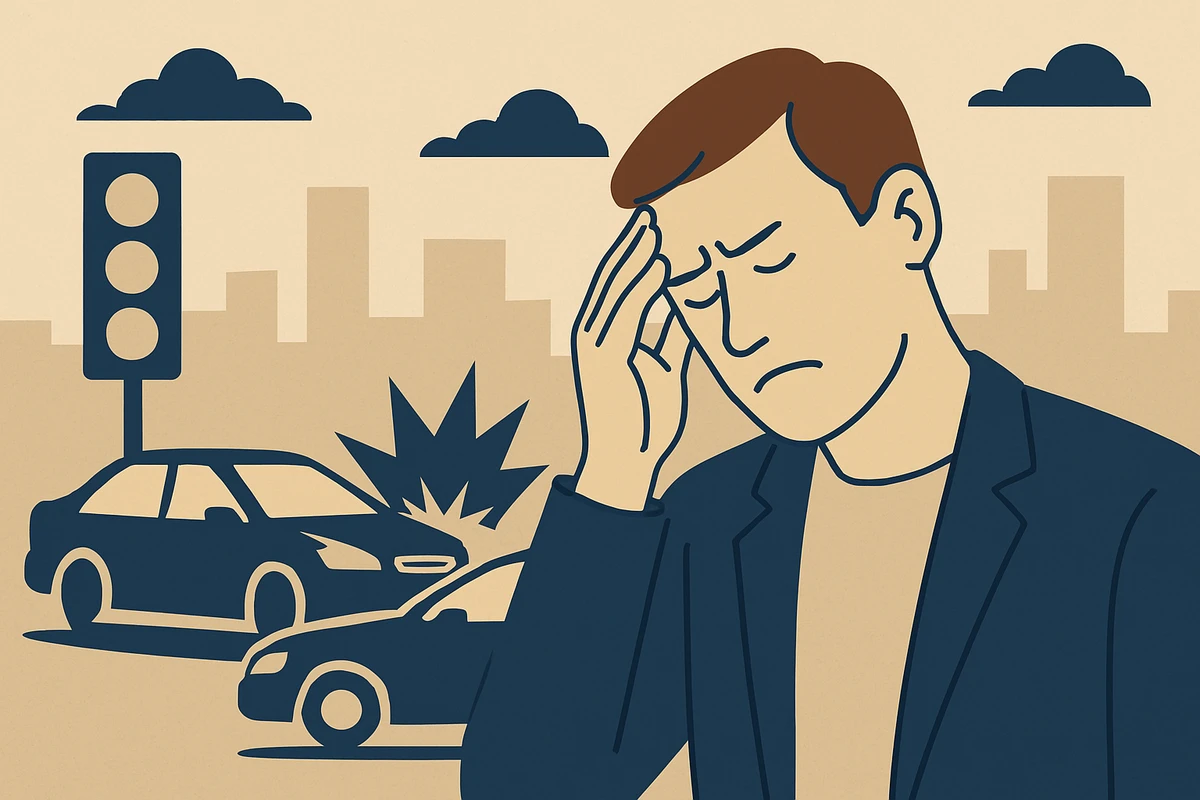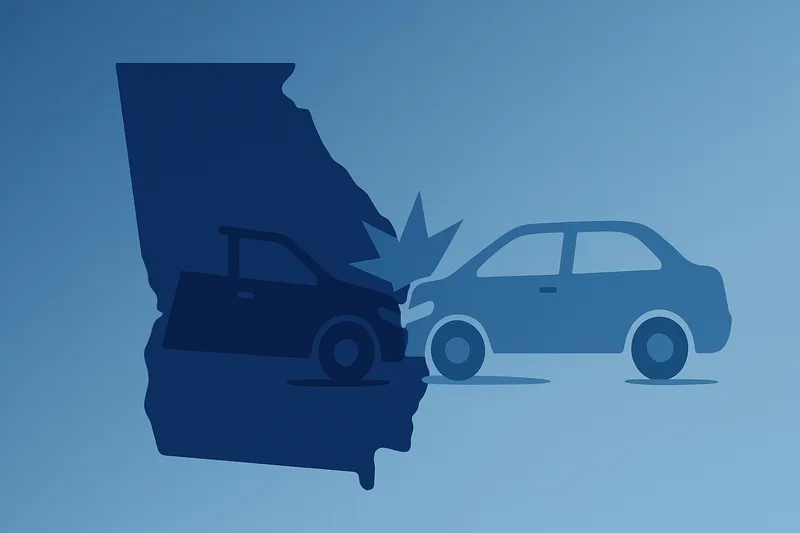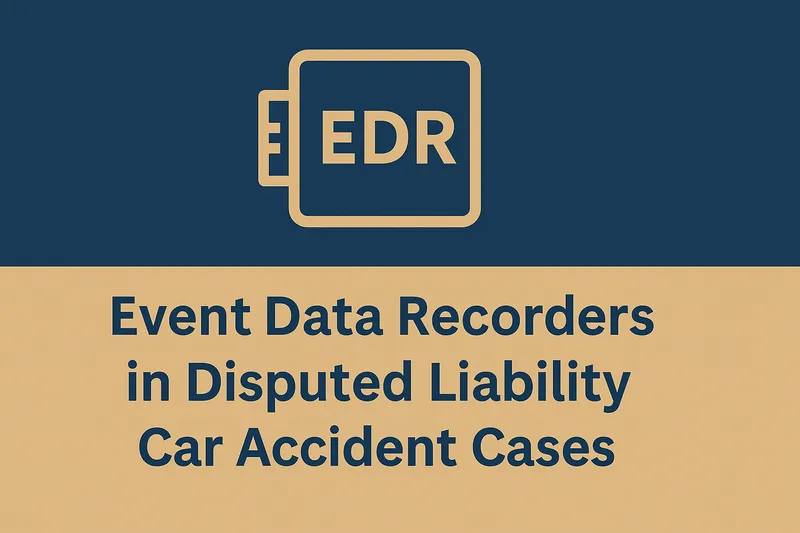Headache After a Car Accident, but You Didn’t Hit Your Head?

Published: 3/30/2025
It can be frightening and confusing to suffer a headache after a car accident if you know you never hit your head during the crash. Many accident victims experience this exact scenario. In truth, a sudden car collision can cause headaches and even serious underlying injuries without a direct blow to the head. Below, we explain the common medical reasons for post-accident headaches (such as whiplash, concussion, muscle strain, and stress) and outline the legal implications – including how these symptoms support a personal injury claim, the importance of medical documentation, and the types of compensation that may be available.
Medical Reasons for Headaches Without a Direct Head Impact
Even if your head never struck the steering wheel, window, or any object, you might develop a significant headache after a car accident. Whiplash is one of the most common causes of post-accident headaches when no direct head injury occurred. Whiplash is a soft tissue neck injury caused by the head being violently snapped back and forth (like the cracking of a whip) during the impact of a collision. This sudden motion can strain or sprain the muscles, ligaments, and joints in the neck (a cervical strain). Headaches are a well-known symptom of whiplash – often starting at the base of the skull and radiating upward. In fact, whiplash headaches are a type of cervicogenic headache (originating from the neck). The pain typically begins in the neck and can travel to the back of the head or even to the temples and eyes. You might also experience neck pain and stiffness along with the headache. These headaches result from the neck injury itself (damage or inflammation in the cervical spine can refer pain to the head) and are not because you directly hit your head.
Concussion or Mild Traumatic Brain Injury (Without Hitting Your Head)
A concussion is a mild traumatic brain injury (TBI). Many people assume you can only get a concussion if you hit your head on something. In reality, the force of a car accident can cause a concussion even if your head wasn’t struck. The jolt to your body can make your brain bounce or twist inside your skull, essentially causing an internal head injury. As one medical source explains: if your body is violently jolted in a crash, your brain can collide with the inside of your skull, which may result in a concussion. After a concussion, it’s very common to develop headaches. In fact, the American Headache Society reports that about 95% of people who suffer a concussion experience post-traumatic headaches (often with migraine-like symptoms). These headaches can appear immediately or be delayed by a day or two. Many concussion-related headaches feel like migraines (throbbing pain, light sensitivity, nausea) or like tension headaches. Most concussion symptoms improve within a few weeks, but in some cases they persist. Post-concussion syndrome (also called persistent post-concussive symptoms) refers to a situation where concussion symptoms last for months. Headache is one of the primary symptoms of post-concussion syndrome, along with dizziness, fatigue, and trouble concentrating. So if you’re having prolonged headaches weeks or months after a crash, it could be due to a concussion from the accident, even though you never hit your head on anything. It’s important to have a medical professional evaluate you for signs of a mild TBI in this scenario.
Muscle Strain and Tension Headaches
Another reason for post-accident headaches is muscle strain and tension in the neck and shoulders. The impact of a collision can cause your neck and upper back muscles to stretch or even sustain small tears. In the hours or days after the crash, those injured muscles may become very tense and inflamed. This can trigger tension-type headaches, which often feel like a tight band around your head. According to medical experts, tension headaches happen when the neck and scalp muscles contract and become tense, causing pain that can affect both sides of the head and the back of the neck.
These headaches from muscle strain are closely related to whiplash injuries (indeed, whiplash involves muscle and ligament damage in the neck). Even a “minor” soft tissue injury can lead to very real headaches. You might initially feel only mild soreness in your neck after the crash, but over a day or two, as inflammation builds or muscle spasms occur, you could start getting constant headaches. It’s your body’s way of signaling that the neck and head were subjected to trauma. The location of these headaches can be the base of the skull, the forehead, or all over (tension headache pain often spreads diffusely). The good news is that muscle-related headaches tend to improve as the underlying neck strain heals, but in the meantime they can be quite painful and disruptive.
Emotional Trauma and Stress (Psychological Causes)
Beyond physical injuries, psychological trauma from the accident can also manifest as headaches. A car crash is a frightening, high-stress event. In the aftermath, your body releases stress hormones and remains on high alert (the classic “fight or flight” response). This prolonged stress can lead to tension headaches or migraines even if you had no direct physical injury to your head. Researchers have found a strong connection between post-traumatic stress disorder (PTSD) and headaches. One likely explanation is that people with PTSD or high anxiety have increased muscle tension in the head and neck due to stress, which in turn triggers headaches. In other words, the psychological stress from the accident can cause very real, physical pain.
If you find yourself replaying the accident in your mind, feeling anxious, or having trouble sleeping, these emotional symptoms could be contributing to your headaches. In fact, studies indicate that car accident victims who suffer chronic headaches have a high prevalence of PTSD – one report noted about a 50% overlap (half of patients with long-term post-accident headaches also had PTSD). This doesn’t mean the headaches are “all in your head” or imagined; rather, it shows that the trauma of the crash can lead to both mental health struggles and physical pain, each aggravating the other. Treating conditions like anxiety or PTSD (through therapy, for example) often can help reduce stress-related headaches. It’s important to mention any psychological symptoms to your doctor, because addressing your emotional well-being is an integral part of recovering from an accident and the headaches that follow.
Proving the Cause of Your Headaches (Medical Documentation)
When pursuing a claim, one challenge with injuries like whiplash or mild TBI is that they are often invisible. You can’t “see” a headache on an X-ray or cast. Because of this, medical documentation is critical. Make sure you report any post-accident symptoms to a healthcare provider as soon as possible. Explain that you were in a car accident and describe the headache pain, even if it started a day or two after the crash. A doctor can evaluate you (possibly ordering imaging or neurological tests) and note the likely cause of your headaches in your medical records. This creates a clear link between the accident and your condition.
It’s worth noting that delayed symptoms are common after car accidents. You might have felt fine immediately after the collision thanks to adrenaline, only to develop a splitting headache or neck pain the next morning. According to legal experts, soft tissue injury symptoms like pain, reduced mobility, or headaches might not show up for days or even weeks after a car accident. This delay does not mean the injury isn’t real or was caused by something else. However, insurance companies may seize upon any delay or gap in treatment to downplay the injury. They might argue that your headaches “couldn’t be from the crash” if you didn’t mention them right away.
Documentation and timing can make or break these arguments. It’s important to seek medical attention promptly after an accident, even if you feel okay, and to return for a follow-up as soon as you notice new symptoms. Tell the doctor about the accident and ensure they record your complaints. This way, if headaches emerge a bit later, there will still be an official record tying them to the accident (for example, your doctor might note that delayed-onset whiplash is suspected). Nolo’s legal guidance on accident injuries emphasizes that because injuries like whiplash are hard to see on diagnostic tests, starting a paper trail of medical records is crucial at the first sign of injury. Consistent medical records will support your claim that the car crash caused your headaches. Additionally, following through with all recommended treatments (such as physical therapy, medications, or specialist visits) not only helps you heal but also shows that you are taking the injury seriously, which can strengthen your legal case.
Compensation for Headache-Related Injuries
If another driver was at fault for the crash, then your post-accident headaches and the underlying injuries (neck strain, concussion, etc.) are legitimate damages for which you can seek compensation. In a personal injury claim or lawsuit, you would typically demand compensation for both your economic losses and non-economic losses related to the injury. This can include several categories of damages:
Medical Expenses: This covers the cost of diagnosing and treating your injury. It can include emergency room visits, doctor examinations, hospital bills, diagnostic tests (like CT or MRI scans to check for head or neck injuries), prescription medications (for pain relief, muscle relaxants, etc.), and follow-up care such as physical therapy or chiropractic treatment. If your headaches persist and you require ongoing treatment (for example, neurologist visits for post-concussion headaches or pain management for chronic migraines), those future medical costs should be factored in as well. All of these medical costs resulting from the accident can be claimed from the at-fault party’s insurance.
Lost Wages and Earnings: If your injury-induced headaches cause you to miss work – even for a few days of rest or medical appointments – you may claim the income you lost. Some people suffer headaches severe enough to prevent them from performing their job for an extended period. In such cases, not only past lost wages but also loss of earning capacity can be claimed (if, for instance, post-concussion cognitive issues or chronic pain force you to reduce your hours or change jobs). Be sure to keep documentation, like doctor’s notes for time off work and employer wage statements, to substantiate this part of your claim.
Pain and Suffering: Car accident victims are also entitled to compensation for the physical pain and emotional distress caused by their injuries. This is referred to as “pain and suffering” damages, and in cases of ongoing headaches and similar soft-tissue injuries, it is often a significant component of the claim. Unlike medical bills or lost wages, there’s no bill or receipt for pain and suffering – it is a non-economic damage that must be supported by evidence of how the injury impacted your life. Frequent debilitating headaches can dramatically affect your quality of life, making it hard to concentrate, sleep, or enjoy daily activities. They can also take an emotional toll (for example, causing frustration, depression, or anxiety about your health). All of that is compensable in the form of pain and suffering damages. In fact, legal analyses note that pain and suffering is often “the most significant damage piece” in whiplash-type injury cases because it encompasses the ongoing chronic pain and life disruption that these invisible injuries cause. Insurance companies and courts will consider factors like the severity and frequency of your headaches, the length of time you suffered with them, and how they affected your routine (Did you have to quit hobbies? Are you unable to care for your kids during a headache episode? etc.) when determining a fair amount.
In summary, you can seek comprehensive compensation for the consequences of a crash-related injury even if it’s “just” headaches and neck pain without a head wound. One law firm advises that victims in this situation may be entitled to damages covering medical bills, lost wages, pain and suffering, and other losses caused by the accident. Don’t let the invisible nature of a headache injury fool you – it is as real as a broken bone, and the law recognizes that. The key is to firmly establish the connection to the accident (through prompt and thorough medical documentation) and to detail how the injury has affected you.
Compassionate Guidance for Accident Victims
Coping with persistent headaches after a car accident can be physically painful and emotionally draining. It’s important to remember that you are not alone, and you are not “making it up.” Many car accident victims experience delayed pain like headaches or neck problems, even when there was no direct impact to the head. Medical science and legal precedent both acknowledge these post-accident headaches as genuine and often injury-related. By getting proper medical care and legal advice, you can address your health needs and protect your right to compensation.
Take care of your health first and foremost. Headaches can be a sign of treatable conditions (like whiplash or a mild concussion), so getting a proper diagnosis and following the treatment plan is essential. At the same time, keep records of all symptoms and treatments. This will not only help your doctors but will also support any insurance claim or legal case that you pursue later. If someone else’s negligence caused the accident, they can be held responsible for the hardships you’re facing now. The law allows you to recover the costs of your medical treatment and to be compensated for the pain, suffering, and life impact of injuries like these post-accident headaches.
While this information isn’t a substitute for personalized legal advice, understanding the connection between your accident and your headache, and knowing the basics of how a claim works, puts you in a stronger position. Dealing with the aftermath of a crash is often overwhelming – physically, emotionally, and financially. Give yourself permission to seek the help you need. Consult with medical professionals for your health and consider speaking with a personal injury attorney to explore your legal options. With documentation and the right support, you can pursue the justice and relief you deserve as you work on healing from both the invisible and visible injuries caused by the accident.
Related Articles



